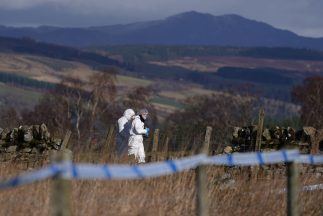Around one in 50 people in Scotland have suffered with long Covid, according to a new landmark study.
The findings, led by the University of Edinburgh, mark one of the first estimates in the world of long Covid using population-wide data.
The study found the condition has a similar prevalence among Scots as strokes and COPD.
Those who are female, aged between 38 to 67, have pre-existing health conditions, are overweight or obese or immunosuppressed had the highest likelihood of suffering the condition.
Around 1.8% of the population sought help from the NHS with persistent symptoms of the virus including chronic fatigue and breathlessness.
However, researchers also state the figure is likely a “significant underestimate” as those who did not receive a formal diagnosis or who did not visit their doctor were not included.
A previous study by the University of Glasgow found that one in 20 people have suffered from long-term Covid effects – which The Scottish Intercollegiate Guidelines Network (SIGN) officially defines as symptoms lasting longer than four weeks after contracting Covid-19.
However, there have been problems recording the prevalence of the condition due to the varying number of symptoms and recording of the condition on NHS systems.
The medical records of more than five million people in Scotland were examined between March 2020 and October 2022 as part of the EAVE II project at the University of Edinburgh.
During the time period it was found that 90,700 people had long Covid.
Much of the study consisted of examining patient notes by healthcare professionals as well as sick notes, primary care records and NHS clinical codes.
Fewer cases of long Covid were recorded when the Omicron variant was most common compared to other variants of the virus.
Luke Daines, who is a GP and researcher at the University of Edinburgh, said: “If you think of 1.8% of the population, that’s still a large number of people and makes it equivalent to diseases such as stroke, COPD, which are significant health burdens and we have clear pathways for treatment.
“So on the one hand this is an underestimate, but on the other hand it still shows quite clearly there are a large number of people that are needing help.”
Professor Dame Anna Dominiczak, chief scientist (Health) for the Covid-19 Recovery Committee Long COVID Inquiry said: “What we have [with the EAVE II study] is exceptional because it looked at 5.1 million adult Scots.
“I am not aware of previous linkage of that size and that power and potential. So I think it is extremely exciting to see that such linkage is possible.”
The study has now been submitted for peer review.
Follow STV News on WhatsApp
Scan the QR code on your mobile device for all the latest news from around the country


 iStock
iStock























